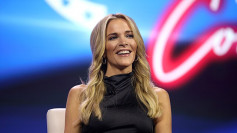Health and Human Services Secretary Robert F. Kennedy Jr. on Monday dismissed all 17 members of the Centers for Disease Control and Prevention's Advisory Committee on Immunization Practices (ACIP), an unprecedented move that immediately drew backlash from public health leaders, lawmakers, and vaccine experts. The announcement, made through an op-ed in The Wall Street Journal and a formal statement from HHS, marks a sweeping restructuring of the committee that guides federal vaccine policy in the United States.
"Today we are prioritizing the restoration of public trust above any specific pro- or anti-vaccine agenda," Kennedy stated. "A clean sweep is necessary to reestablish public confidence in vaccine science."
Kennedy, who has long criticized federal vaccine policy, accused the panel of harboring conflicts of interest and failing to provide independent scrutiny of vaccine recommendations. "The Committee will no longer function as a rubber stamp for industry profit-taking agendas," he added.
HHS confirmed that all 17 members, most of whom were appointed under the Biden administration, would be replaced before the committee's next scheduled meeting on June 25-27. Kennedy argued that without immediate action, the current administration would not have been able to appoint a majority of ACIP members until 2028.
The move has raised concerns from across the political spectrum. Sen. Bill Cassidy (R., La.), who voted to confirm Kennedy after receiving assurances the ACIP would remain intact, posted on X, "Of course, now the fear is that the ACIP will be filled up with people who know nothing about vaccines except suspicion." He added, "I've just spoken with Secretary Kennedy, and I'll continue to talk with him to ensure this is not the case."
Sen. Susan Collins (R., Maine) said the decision "raises serious questions," adding, "It seems to me to be excessive to ask for everybody's resignation."
Medical and public health organizations issued strongly worded rebukes. Dr. Bruce A. Scott, president of the American Medical Association, warned that Kennedy's action "undermines trust and upends a transparent process that has saved countless lives." Dr. Susan Kressly, president of the American Academy of Pediatrics, called the firings "a move that undermines the trust pediatricians have built over decades with our patients."
Dr. Paul Offit, a pediatrician and member of the FDA's vaccine advisory panel, called the decision "extremely dangerous." He told ABC News, Kennedy ”doesn't have a single example to show where a vote by one of these committees has hurt children. In fact, the opposite is true."
Former CDC Director Dr. Mandy Cohen said she was "deeply concerned for families trying to navigate how to keep their loved ones healthy and safe," while Dr. Richard Besser, a former acting CDC director and now president of the Robert Wood Johnson Foundation, said, "This decision demonstrates a complete lack of caring about the health and safety of every American."
Dr. Tina Tan, president of the Infectious Diseases Society of America, called the action "reckless, shortsighted and severely harmful." A recently dismissed ACIP member told CNN, "I've never seen anything this damaging to public health happen in my lifetime."
The firings come two weeks after Kennedy unilaterally announced the removal of COVID-19 vaccines from the CDC's immunization schedule for healthy children and pregnant women. Last week, a CDC official who co-led part of ACIP resigned in response.
Critics warned that the rapid timeline for replacing the committee raises new risks. "Appointing people this fast means they were not properly vetted, and there is no real time to check conflict of interests issues," said Dorit Reiss, a law professor at UC Law San Francisco.
Dr. Mike Osterholm, founder of the Vaccine Integrity Project, said, "The firing of the ACIP represents one of the darkest days in modern public health. Mr. Kennedy has no interest in science or saving lives. We have entered into a dangerous time for the health of the country."






